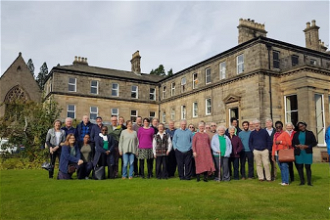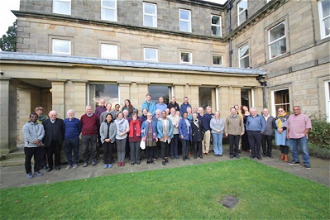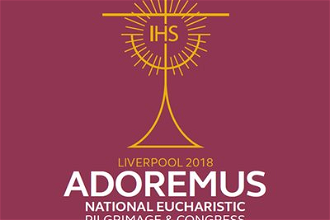Viewpoint: A poor Church for the poor

Steve Atherton, J&P Fieldworker for Liverpool, writes:
One of the first things Pope Francis said on his election four years ago was to wish that the church would be “a poor church for the poor”. What would a ‘poor church’ look like and what transformation will be necessary before we become such a church? Can we say we want to be part of the “Poor church for the poor” that Pope Francis spoke about?
When I look at the church in Rome, where I find great strength and great support, I don’t see a poor church. My own daughters tell me they are scandalised by the wealth of the Vatican. And it’s not just us RCs who have ostentatious wealth. The other week I walked past Lambeth Palace, the home of the Archbishop of Canter-bury ... a bishop in a palace! I look at my own parish in Wigan where we have two beautiful church buildings, two presbyteries, two sets of parish rooms and a school. I don’t see a ‘poor church’. Slightly shabby, seen better days perhaps but not poor. I look at myself: I have a home, a car, a bank account, savings, etc. Am I living as a member of a poor church? I look around at the church in the archdiocese and wonder how many of us could feel comfortable with that question, with so much scrutiny. Do our lives match the things we say?
BUT, are we actually asked to be poor? Are we required to give away all our money and become poor ourselves? Aren’t we rather called into solidarity, into a way of thinking and feeling that asks us to treat our possessions as a gift that we can share? That’s how Jesus lived his life. His kingdom was a place where people thrived, where lives were transformed, where sickness was cured, where the blind could see, the lame could walk and the dead could live again. Our faith invites us to be part of such a life-giving movement. We can help people out of poverty, we can make a difference, we can show solidarity. We can put our resources to good use. It’s not a cop out to seek to be ‘poor in spirit’.
When I look around I see that it is already happening: Pope Francis has installed showers for rough sleepers in Rome and given a home to some Syrian families; the archbishop of Canterbury has put some Syrian families into Lambeth Palace; our archdiocese is preparing to be part of the Community Sponsorship Scheme; the two cathedrals run the Hope+ food bank; the churches in Liverpool have set up Feeding Liverpool; church people are involved wherever there is struggle against poverty.
I don’t let myself off too easily because I know that I am not as involved as I could be. In January, Rev Raj Patta, a Dalit Lutheran currently studying for his doctorate at Manchester, gave our Memorial Lecture. He said that in our times Reformation translates as Hospitality. I like that. We are called to care and to show that we care ... not just for ourselves and our families but for our neighbour – and we all know what an inclusive word that is for Jesus and should be for us. The focus of our hospitality is not to be ourselves, our families or people who are like us but must include those who are most in need. We know this as ‘the option for the poor’.
It is good fortune and God’s grace that have placed us where we are, rather than some worthiness or virtue of our own. ‘The poor’ is what we would be if it wasn’t for all the support structures that hold us up. I am convinced that ‘the poor’ reflect back to us how fragile we all are.
This realisation is followed by a call to action. We have been helped and we can be part of this virtuous circle of help. We can get involved with national organisations such as CAFOD, NJPN, Church Action on Poverty, Housing Justice, and Pax Christi or we can volunteer locally with an asylum seeker organisation, a Food Bank or a Credit Union. That way we can help to work with vulnerable and excluded people. At this particular moment in the UK, as I write, we can ask ourselves and others what our votes can do to make our country a fairer and less unequal place. And if the current political system doesn’t offer the answer maybe we need to look seriously at how the church can be a positive influence at a local and national level.
This article is from the summer 2017 edition of ‘Mouthpeace’, the Justice and Peace North-West newsletter produced by the Archdiocese of Liverpool Justice & Peace Commission and the Diocese of Shrewsbury Commission for the Promotion of Justice, Peace & Social Responsibility. Read the entire newsletter at: https://jpshrewsbury.files.wordpress.com/2010/12/mp-98-summer-20171.pdf


















